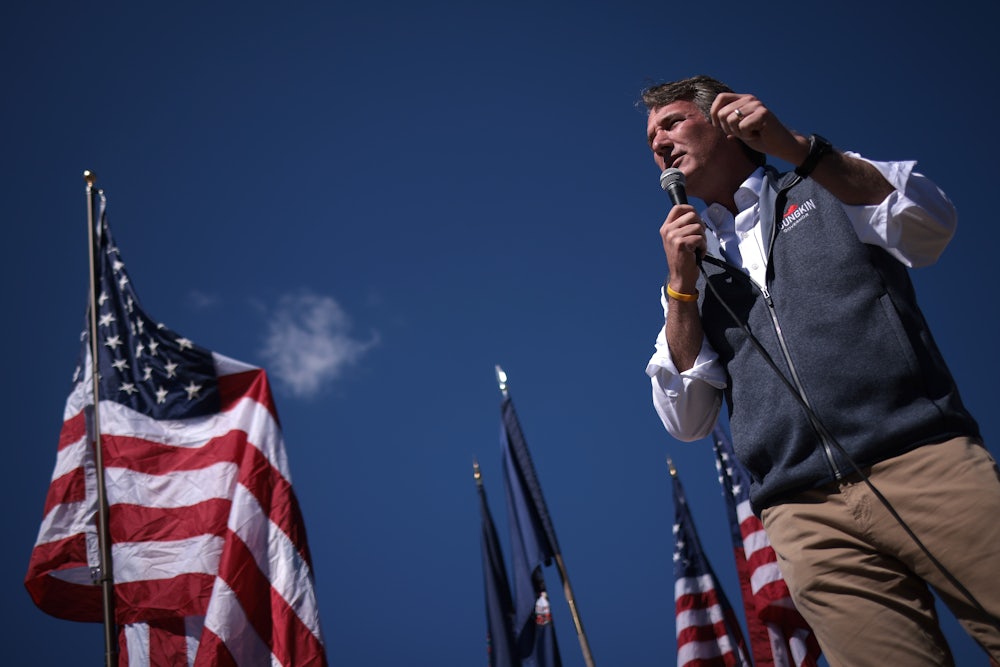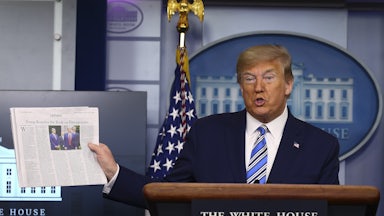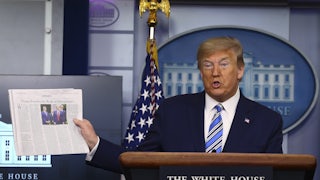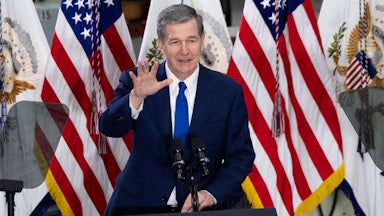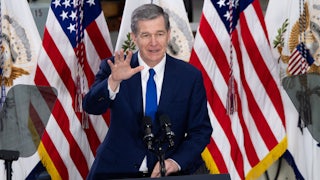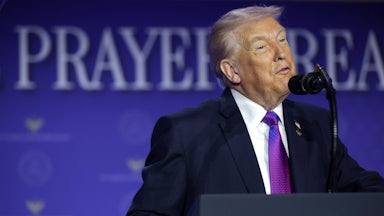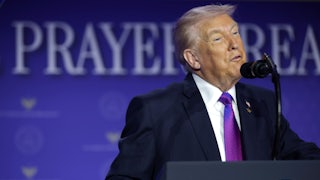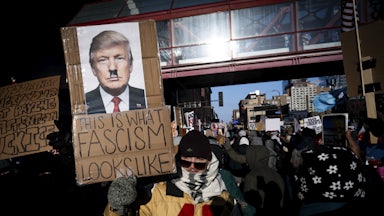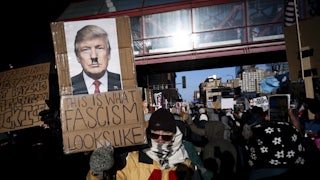As Virginia’s gubernatorial election draws to a close, debate continues over what, exactly, the state’s gubernatorial election—and seemingly the year’s only “bellwether” contest for the media to ponder this year—might tell us about what’s to come in American politics. Is it a sign that voters have soured on Joe Biden and that invocations of Donald Trump have lost their potency? Have the Democrats lost the suburbs amid the uproar over “critical race theory?” Is the Republican candidate Glenn Youngkin’s promise of a “Trump Light” future of the GOP the secret to the party’s resurgence?
Picking midterm issues a year in advance is a fool’s errand: Six months ago, political arguments were about lockdowns and reopening schools, not what children were being taught. But there’s one issue on which Republicans have been remarkably consistent: The 2020 election was rigged, Democrats are preparing to steal more votes, and draconian voter-suppression laws are the only way to stop this from happening.
It is still not quite clear how dogmatic GOP voters will require their candidates to be in this matter, despite the fact that casting doubt on elections was perhaps Trump’s most notable and most constant refrain throughout his political career. In Virginia, Youngkin has walked a tightrope: He has said that Biden’s election was legitimate—albeit after first ducking the question—but has also cobbled together a low-proof version of the Big Lie, launching an “election integrity task force” and pledging to audit the state’s voting machines, which is something that has already happened.
In Florida, meanwhile, longtime Trump ally Roger Stone has threatened to run against Republican Governor Ron DeSantis—who has pushed the Big Lie with singular enthusiasm for months—for the crime of not doing enough to safeguard the state’s elections against nonexistent Democratic chicanery. “If Florida governor Ron DeSantis does not order an audit of the 2020 election to expose the fact that there are over 1 million phantom voters on the Florida voter rolls in the Sunshine state,” Stone wrote on the right-wing social media network Gab, “I may be forced to seek the Libertarian Party nomination for governor Florida in 2022.”
At this point, it’s the spectral notion of rigged elections—more than critical race theory fearmongering, possibly even more than fealty to Trump himself—that binds Republicans together. Only one-third of Republican voters believe that the 2024 election will be fair, per an NPR poll published on Monday. More than two-thirds, meanwhile, agreed with the statement: “Donald Trump continues to say the 2020 election was rigged mostly because he is right.” Only 53 percent said that they would trust the results if their candidate lost.
This is an extraordinary development after January 6’s attempted insurrection. And yet the threat of the spread of conspiracy theories about the 2020 election has arguably only increased since then; and its position as the keystone of GOP orthodoxy has only been further cemented.
A harrowing Washington Post investigation into the insurrection only illuminates this further:
After Jan. 6, Trump would emerge emboldened, bluntly threatening those who did not share his obsession with last year’s vote and positioning himself to retake the White House in 2024. Most ominously, a deep distrust in the voting process would spread across the country, supplanting a long-standing acceptance of election results. That shift would shake the foundation on which the American experiment was built—the shared belief that the nation’s leaders are freely and fairly elected.
That this paranoid idea has become embedded within so many people’s minds has not been met with a forceful counterargument. Democrats have struggled to make the importance of voting rights a key plan for the party, either politically or legislatively. In Virginia, attempts to tie Youngkin, a fleece vest–wearing (and extremely rich) suburban dad, to the extreme views advanced by him and held by many in his party have largely failed. These phantasmic notions, left unconfronted, will remain an article of faith among the voters the GOP is choosing to delude, likely with results that aren’t just tragic but ironic as well: It is, after all, Republicans who have mounted a nationwide campaign to rig elections, the better to ensure their own electoral success, just as it is Republicans who continue to advance the lies that led to the January 6 insurrection.
With Youngkin’s rise in Virginia, the idea that Republican candidates can find electoral success by running at arm’s length from Trump is suddenly in vogue: Here, after more than five years of wandering in the former president’s psychological wilderness, is a way for Republican candidates to woo suburban voters without leaving conservative-leaners alienated or sacrificing too much of the MAGA true-believer base. But the continued salience of the rigged-election lie within the Republican political sphere makes running at a respectable distance from Donald Trump impossible. His single-most important and lasting political achievement was to undermine faith in democracy for millions. As long as Republicans continue to do that, no candidate should truly be allowed to claim some “Trump Light” mantle—fleece vest or no.
